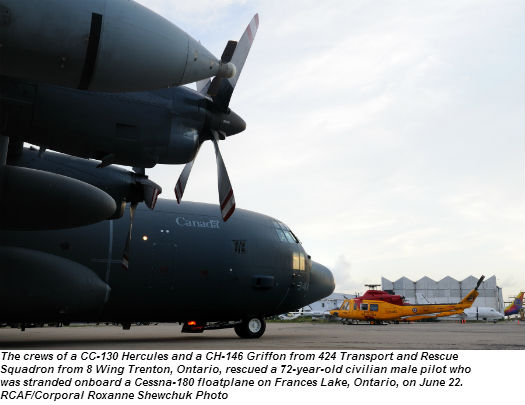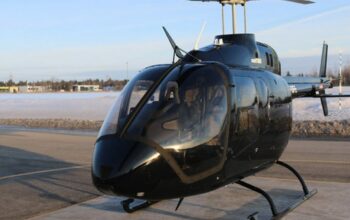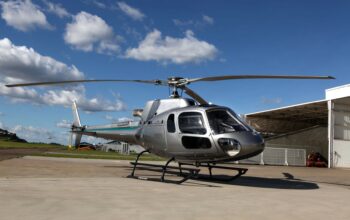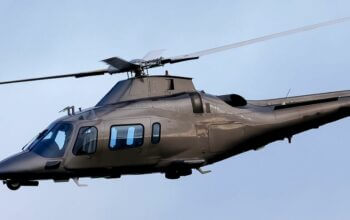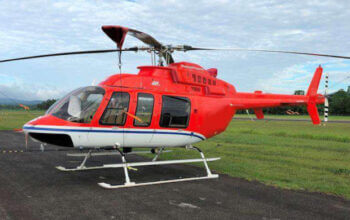RCAF Press Release | June 25, 2014
Estimated reading time 2 minutes, 43 seconds.
Two search and rescue teams from 424 Transport and Rescue Squadron from 8 Wing Trenton, Ontario rescued a 72-year-old civilian male pilot who was stranded onboard a Cessna-180 floatplane on Frances Lake, Ont., on June 22, 2014.
“We’re glad that the pilot was uninjured and in good shape when we found him,” said Captain Justyna Pietraszek, an air combat systems officer with 424 Squadron. “It was such a fulfilling experience when we brought him back to his family safe.”
A CC-130H Hercules with seven personnel and a CH-146 Griffon helicopter with five personnel were tasked at approximately 7:20 a.m. (EST) after an emergency locator transmitter (ELT) was picked up by high flyers in the Lake Huron area. The Ontario Provincial Police also reported the Cessna floatplane, enroute from Nepewassi Lake to Frances Lake, was overdue. Within an hour, the two search and rescue teams from 424 Squadron were airborne to search for the pilot.
The Hercules proceeded north towards Sudbury, Ont., where it picked up the floatplane’s ELT, which led them to Frances Lake. The Hercules found the floatplane and the Griffon helicopter came to pick up the pilot, who was uninjured, and brought him back to his farm in Sudbury.
The Cessna pilot was stranded in Frances Lake when his floatplane would not start. He spent the night afloat and turned on the ELT in the morning before his flight note expired.
Quick Facts
- 424 Squadron is based at 8 Wing Trenton, Ontario, and together with 435 Transport and Rescue Squadron out of 17 Wing Winnipeg, Manitoba, they are responsible for 10,000,000 square kilometres of the Trenton Search and Rescue Region, which comprises most of the Province of Quebec, all of Ontario, the Prairie Provinces and the entire Arctic.
- Search and rescue incidents under the federal search and rescue mandate are defined as “all aircraft incidents and all marine incidents in waters under federal jurisdiction.” With the exception of federally owned National Parks, the overall responsibility for ground search and rescue rests with the provinces, territories and municipalities. The Canadian Armed Forces may, however, provide assistance to land and inland water rescues when possible.
